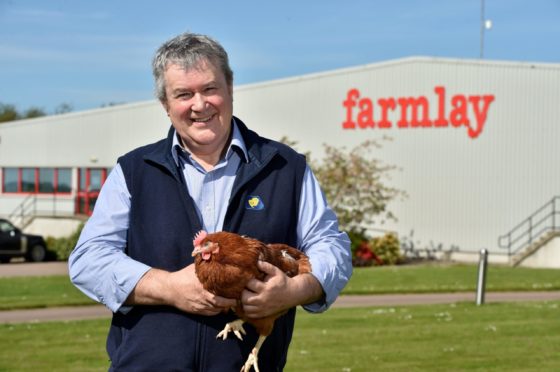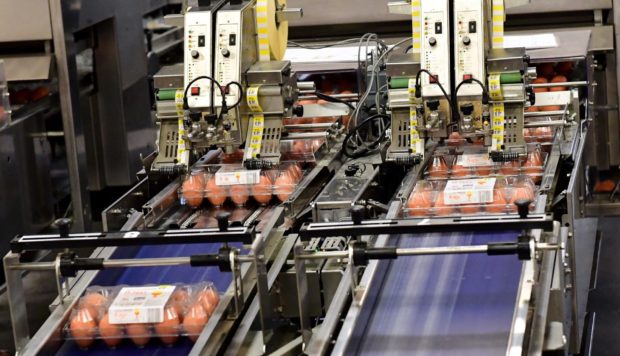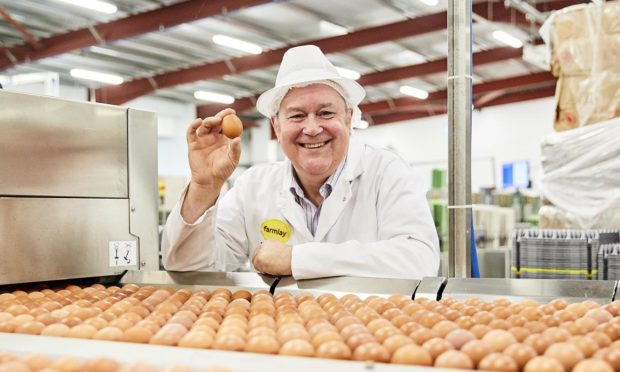One of Scotland’s leading egg producers, Farmlay Eggs, has hailed a 20% increase in sales during the Covid-19 pandemic.
Farmlay Eggs, based at West Cockmuir Farm near Fraserburgh, is run by Robert and Ethel Chapman and their son Iain.
The company processes and packs eggs for major supermarkets including Aldi, Lidl, Morrisons and Tesco.
Around 40% of its eggs are produced in-house and the remainder are sourced from a group of 25 producers located from Nairn in the north to Kinross in the south.
“We have had a good Covid-19,” said Robert Chapman.
“Egg sales have been strong, but it’s been quieter now since lockdown has eased.”
He said demand increased by 50% during the first lockdown, and it had been up by around 20% during the pandemic.
“It was very challenging but luckily we were in the middle of a fairly major expansion anyway,” added Mr Chapman.
“We were lucky as a company that we had quite a lot of extra new birds coming on.”
Increased profits
Mr Chapman’s comments come following publication of Farmlay’s latest accounts, filed with Companies House.
The accounts, which cover the year to May 31, 2020, reveal a boost in both turnover and pre-tax profits.
Sales in the year were up 12% to £21.1 million, from £18.88m the year before, while pre-tax profits were up 5.6% to £1.398m, from £1.324m previously.
In his report accompanying the accounts Mr Chapman said turnover was up due to an improved egg market and increased sales due to Covid-19.
“We continue to invest in our business and in the past year we have spent £6m in improvements,” added Mr Chapman.
Investments include the purchase of 230 acres of arable land to grow more crops for feed, conversion of existing rearing sheds to free range egg production, and the purchase of a vacant broiler farm for conversion into a rearing unit.
“The retail market is still very competitive; consumption of eggs, however, continues to rise,” added Mr Chapman.
“This is positive for the industry and the company. It is hoped that the strategy of keeping all aspects of rearing and production, along with distribution, under the control of the company will continue in keeping the business competitive.”
He said the company was looking to recruit two to three new producer suppliers, and it was working to convert all of its caged production to either barn or free range production by 2024.
It is also considering investment in further robotic technology at its packhouse at West Cockmuir because it is getting more difficult to recruit staff, added Mr Chapman.


